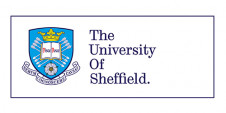Tailoring Treatment using Demand-based technologies
Can future water scenarios that assess social and technical solutions be developed to aid in the addressing of upcoming challenges?
This theme asks whether game-changing treatment tailored for specific requirements could provide more sustainable alternatives to the current centralised treatment and distribution systems. Opportunities to be explored will include:
- Lower energy and chemical-free treatment options, especially for decentralised, resource-limited settings;
- Technologies for controlling pollution of water at the point of waste generation, e.g. fats, oils and grease in kitchens;
- Technologies for removing recalcitrant emerging micro-pollutants.
The theme is not just about demonstrating existing treatment technologies at different scales, but rather it is about the dreaming, designing, coupling, testing, demonstrating, adapting, appraising, rejecting and prioritising of tailored technologies.
The research team, a collaboration between Imperial and Sheffield Universities, will :
- Address the research challenges in developing and implementing demand-based technologies for tailored solutions.
- Develop a framework for rigorously assessing the demonstrated technologies.
- Develop a horizon-scanning roadmap of new and coupled technologies that identifies the potential for new tailored solutions
The first few years (until end of 2018) the team will be mainly focused on technological innovations that have already been identified and doing the necessary research to raise their Technology Readiness Levels. The subsequent years will focus on new ideas that come out of the horizon-scanning roadmap.
How can people get involved?
If you have an interest and/or are working in some of the challenges and opportunities listed above, please get in touch with us at twenty65@sheffield.ac.uk . We welcome the opportunity for input and collaboration with others in academia and industry. We are especially keen for opportunities to test technologies in non-laboratory settings, e.g. at pilot-scale, using a range of realistic water matrices.
